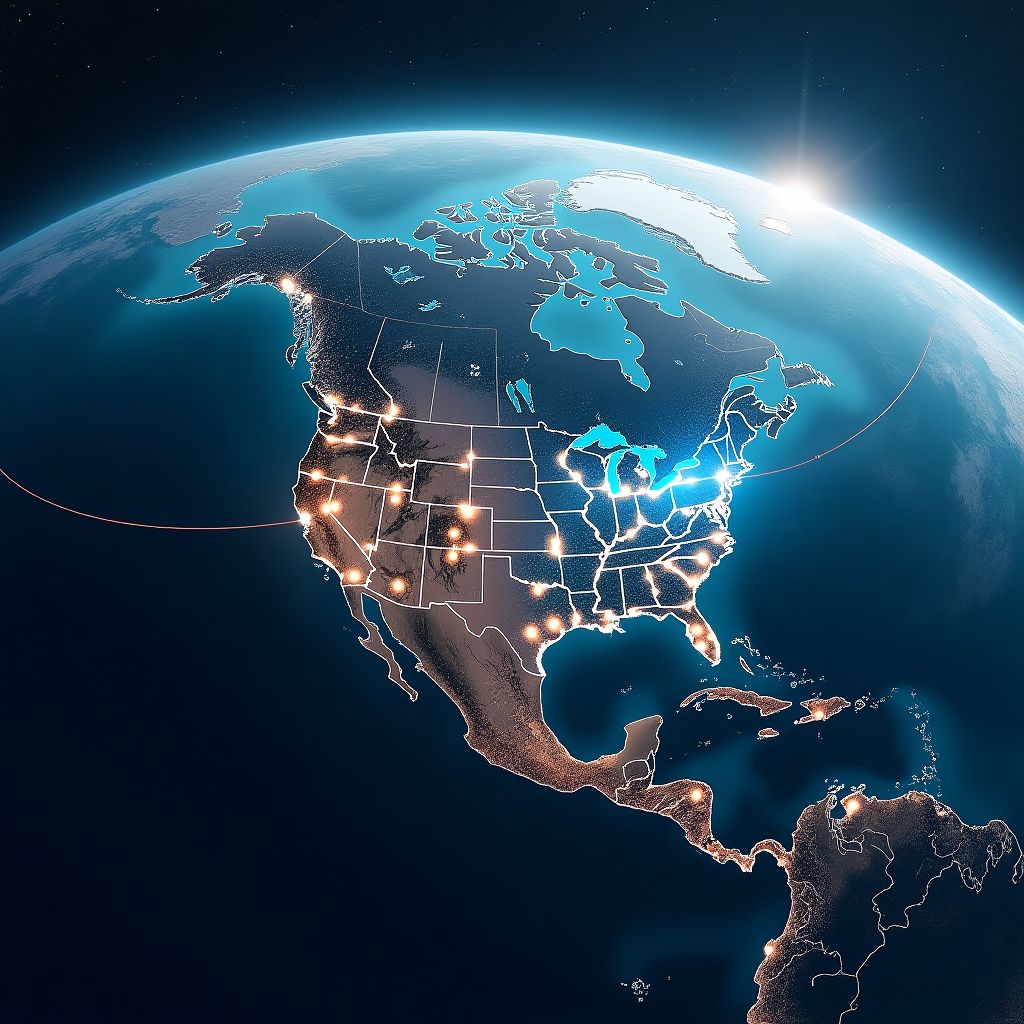Once upon a time, a tweet could shake the geopolitical world like a snow globe. Picture this: Peter Zeihan, an astute observer of global dynamics, takes us on a journey from the picturesque trails of Cape Brett in New Zealand. His narrative intertwines politics, energy, and hypothetical realities inspired by one of Donald Trump's audacious proposals. It's a tale that connects the dots of global energy strategy, unearthing deeper insights. We dive into this wild ride, exploring the implications of a world where tweets might just start revolutions.
In a world where leaders flex their Twitter fingers to suggest grand ideas, we're met with one such scenario: Trump's suggestion for Europeans to turn to American oil and gas to tackle their trade deficits and solidify alliances. Now, Zeihan isn't typically one to chase after the fleeting thoughts of political figures infamous for their off-the-cuff comments. However, this hypothetical exercise has a captivating pull. Why? Because, as our world reshapes, seemingly implausible ideas might hold unexpected potency.
Europe's Energy Appetite
Let's first paint the picture of Europe's thirst. When we say "Europe," we're casting the net wide—from the chalky cliffs of the United Kingdom to the historic landscapes of the Balkans, and everything in between. Europe stands tall, consuming roughly 13 million barrels of crude and refined product daily, alongside a staggering 45 billion cubic feet of natural gas. Despite having a population larger than that of the U.S., its energy use paints a striking contrast. The issue? Europe's economy isn't as brawny or energy-intensive as that of America.
Zeihan points out a fascinating dynamic: as America indulges in a reindustrialization surge, Europe navigates a path of de-industrialization. The reasons? A cocktail of demographic shifts, energy shortages, and workforce constraints. It's a story of a continent caught in a tug-of-war with the sands of time and resources.
America's Energy Dilemma
Now, picture the U.S. as an energy giant contemplating a titanic task—feeding Europe's ravenous appetite. On the surface, ramping up oil production by three to four million barrels per day seems feasible. Natural gas? Well, that's a different beast altogether, requiring a substantial expansion in LNG export capacities. Could this materialize over the next decade? Possibly. But, like a skilled negotiator, Zeihan unveils the catch: to fuel this transatlantic ambition, America would need to reallocate its energy elsewhere.
Let's talk specifics. Our southern neighbor, Mexico, twinkles in this narrative. Mexico heavily leans on American natural gas—it's the backbone of approximately half its electricity supply. Plus, there's the matter of over a million barrels of crude and refined products coursing across the border daily. Then there’s Japan, a steadfast ally. In an attempt to smoothly zip up the numbers, this shift isn't just about swapping energy delivery addresses—it's a larger equation that could unsettle existing alliances.
The Strategic Logic
Still with me? Enter hypothetical wonderland. Imagine a reality where Trump stays true to his intent, mobilizing his team to actualize this energy alliance with Europe. In this dreamscape, the trade deficit isn't the villain; it’s the narrative of strategic blocks as the world tiptoes to the edge of de-globalization.
Zeihan underscores that the United States might not face trouble finding eager takers for its exports. The real question here is affordability and security. As some regions grapple with instability, America's role transforms. Instead of counting on the trade balance, the conversation shifts to forging alliances with potential. Europe stands as a prime candidate to keep geopolitical power plays, like Russia's, in check, while offering historical and cultural ties that American roots resonate with.
From energy to agriculture and military synergy, the concept of an American-Europe partnership shapes a strategic block with muscle. Picture cultural affinity juxtaposed with economic might—a dream that whispers of unity through uncertainty.
Choices in a De-Globalizing World
However, Zeihan, in true storyteller style, doesn't shy away from the plot twist: America's conundrum is real—choices shape the future. Pouring energy into Europe, a region grappling with demographics pushing against its Economic heart, isn't without consequences. Sure, countries like Germany face imminent industry decline, but promising regions like Southeast Asia—think Vietnam, Thailand, Myanmar—pose lucrative alternatives.
A detour to the Eurozone? It faces its challenges. Without a robust consumption economy or solid currency backing, fractures loom. And yet, within these fragments lie robust stories—a France that stands tall, a United Kingdom that's more than viable, the intrigue of Central Europe and the strategic allure of an Italy carved from the European puzzle.
The clichés we teach to 'think outside the box' couldn't be more apt. It's about cutting the pie in unexpected ways and conversations initiated by Trump's voice hinting at complex possibilities.
The Bigger Picture
To wrap it up, Zeihan doesn't just shrug off the idea; he tips his hat to its potential. Whilst admitting that the whims of Trump's policies often see a premature curtain fall, he takes a moment to commend the start of a conversation that's crucial. A world in flux necessitates dialogue and action. Trump's words may not be the force that executes policy, but kudos are due for giving this intricate dance a stage.
As we inch closer to the conclusion, Zeihan adds a caveat. Delving into the realms of political dynamics, he notes the whimsical nature of policy formation under Trump's leadership. Metaphors aside, there's truth in the observation. Zeihan emphasizes that Trump's reputation as an impulsive leader coupled with a less-than-stellar track record of personnel management offers little ground for decision consistency. The dance of cabinet members is as unpredictable as the policies they endeavor to shape.
Ponder for a moment: 16 years, three presidents, a world crumbling under de-globalization. In this saga of regionalization, choices matter more than ever—words might ignite conversations, but it's the actions that weave the chapters of history.
So, dear readers, what’s your take on this evolving reality? Do you envision a world where energy defines alliances and strategic decisions tilt the balance? Share your thoughts—don't hold back! Join our iNthacity community, become a permanent resident of this "Shining City on the Web," and let's embark on a journey of conversations, sharing, and alliances. Together, let's write the pages of this global narrative.
Wait! There's more...check out our fascinating short story that continues the journey: The Fractured Alliance
Disclaimer: This article may contain affiliate links. If you click on these links and make a purchase, we may receive a commission at no additional cost to you. Our recommendations and reviews are always independent and objective, aiming to provide you with the best information and resources.
Get Exclusive Stories, Photos, Art & Offers - Subscribe Today!


























Post Comment
You must be logged in to post a comment.